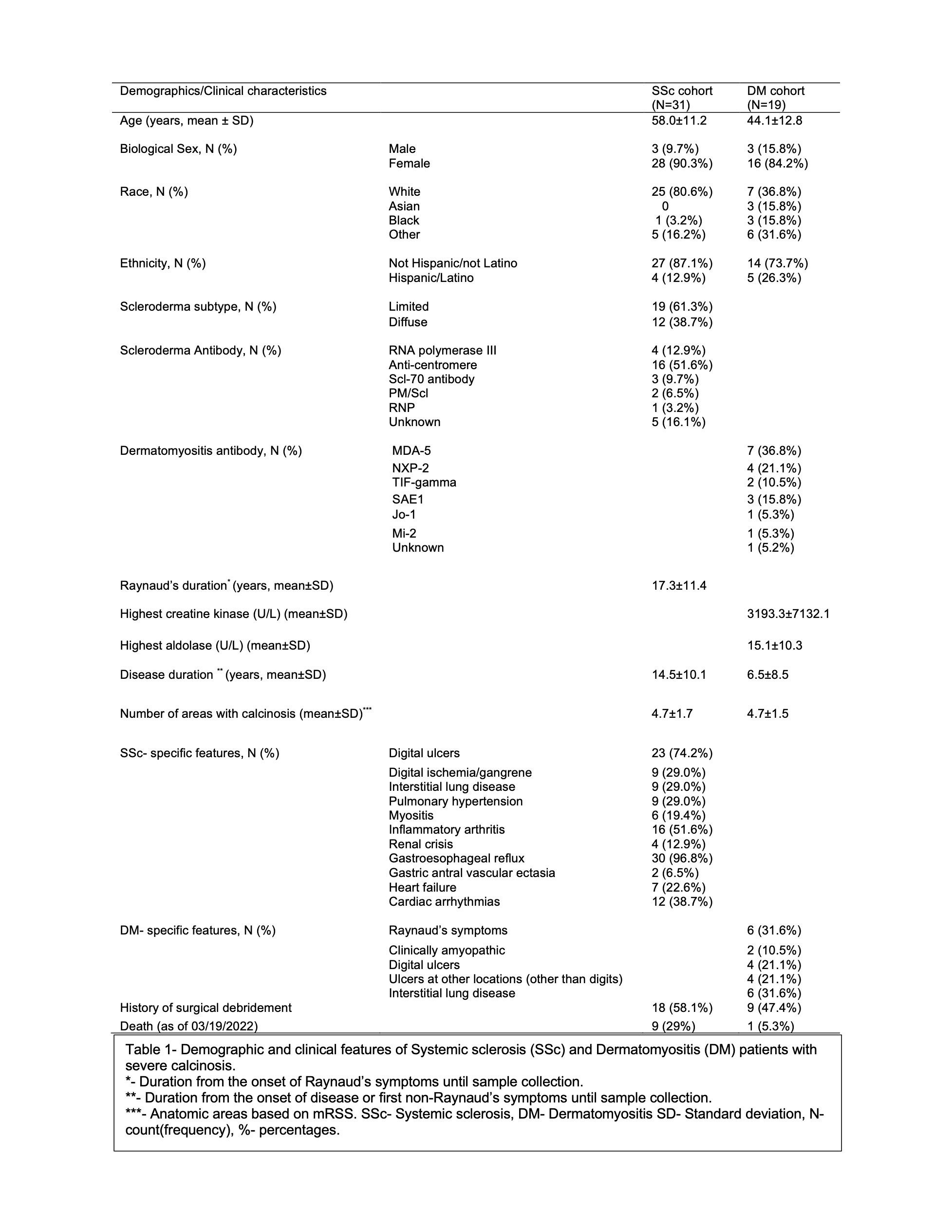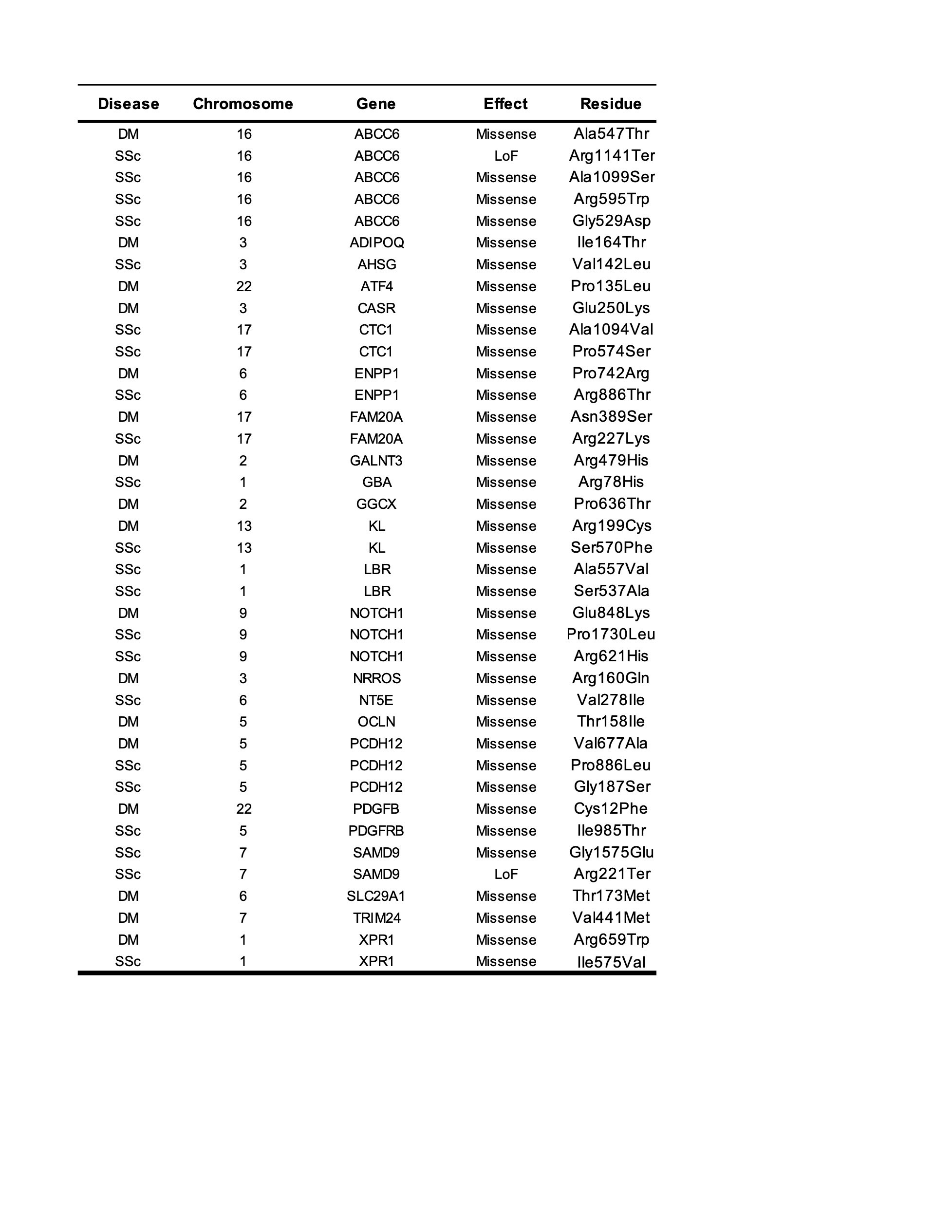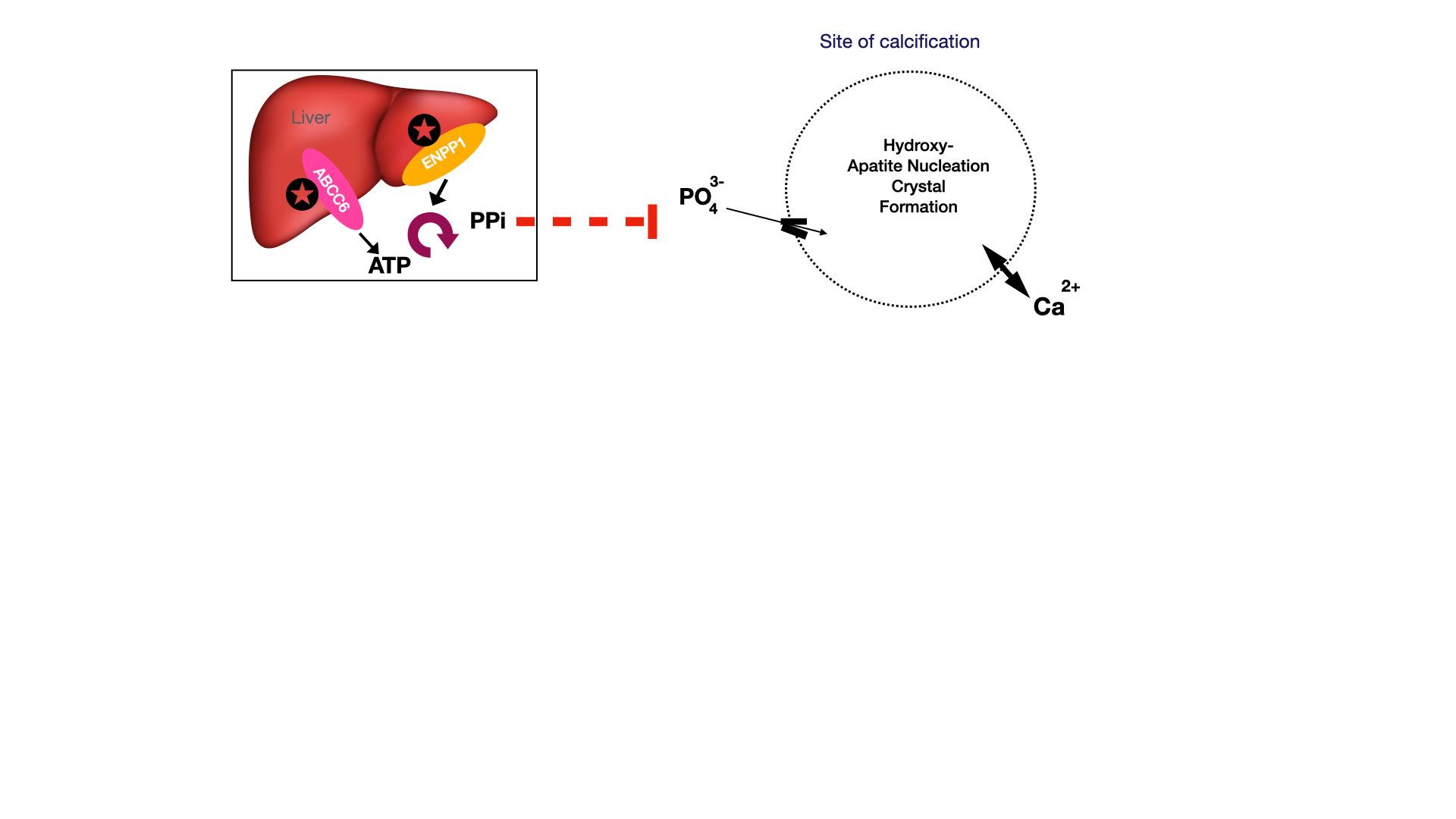Session Information
Date: Monday, November 14, 2022
Title: Abstracts: Systemic Sclerosis and Related Disorders – Clinical II: Clinical Phenotypes
Session Type: Abstract Session
Session Time: 9:00AM-10:30AM
Background/Purpose: Calcinosis, deposition of insoluble calcium salts in skin and subcutaneous tissues, affects up to 40% of systemic sclerosis (SSc) patients, and up to 20% of adult dermatomyositis (DM) patients. It contributes to a significant disease burden as patients suffer from pain, ulceration, and secondary infections. The genetics of calcinosis in SSc and DM has not been investigated and there are no effective therapies to treat calcinosis. In a recent report, lower levels of circulating inorganic pyrophosphate (PPi), an inhibitor of mineralization, was observed in SSc patients as compared to healthy controls1. We hypothesized that rare, protein-coding variants are driving the severe calcinosis phenotype in both SSc and DM patients, and identifying these gene variants would provide us with more insight into the pathogenesis of calcinosis. The goal of this study was to perform genome sequencing of individuals with severe calcinosis, an extreme phenotype, to identify rare variants in genes previously reported in ectopic mineralization pathways as well as novel gene pathways.
Methods: We enrolled 31 SSc and 19 DM patients with severe calcinosis from Stanford and NIH (all met the EULAR/ACR classification criteria) (Table 1). Severe calcinosis was defined as the presence of calcinosis at three or more sites, simultaneously. Genome sequencing was performed using the Illumina platform and variants were called using the standard Genome Analysis Tool Kit pipeline.
Results: Genome sequencing had an average 30X coverage. Using an in-house computational pipeline, we filtered variants with minor allele frequency (MAF) < 0.01 and combined annotation dependent depletion (CADD) score > 15. Thirty-nine rare, coding, singleton variants among 24 genes involved in ectopic calcification pathways were identified (Table 2). Out of these 39 variants, 5 were present in the ABCC6 gene (4 in SSc and 1 in DM) and 2 in the ENPP1 gene.
To identify ultra-rare variants, MAF< 0.0001 and CADD >15 were used which led to the identification of 9 variants: 6 of these were observed in SSc and 3 in DM patients. Two of the variants were seen in GALNT3 and KL genes, and 1 loss of function variant was observed in SAMD9 gene. Lastly, we analyzed genome-wide, ultra-rare variants and identified 54 genes with at least 3 or more variants in each gene.
Conclusion: This is the first study to use an extreme phenotype approach to identify variants in severe calcinosis in SSc and adult DM patients. ABCC6 and ENPP1 are known genes involved in ectopic calcification and have reduced PPi levels (Figure 1). ;GALNT3 and KL genes are implicated in familial tumoral calcinosis and SAMD9 is implicated in normophosphatemic familial tumoral calcinosis. SSc and DM variants in the ABCC6 and ENPP1 genes may contribute to dysregulated phosphate metabolism, reduced PPi and subsequent calcification. Functional studies to elucidate the role of these variants in this pathway are currently underway. Our findings may be of particular importance given that clinical trials exploring PPi supplementation for the treatment of calcinosis are in development.
References-
1) Hsu, Vivien M et al. Rheumatology (Oxford, England), 2022. 61(3):p. 1158-1165.
*- Duration from the onset of Raynaud’s symptoms until sample collection.
**- Duration from the onset of disease or first non-Raynaud’s symptoms until sample collection.
***- Anatomic areas based on mRSS.
To cite this abstract in AMA style:
Davuluri S, Kaundal U, Lood C, Kapoor P, Kawano Y, Dell'Orso S, Deng Z, McMahan Z, Shah A, Hummers L, Kastner D, Wigley F, Fiorentino D, Gourh P, Chung L. Extreme Phenotype Approach Identifies Rare Variants in Systemic Sclerosis and Dermatomyositis Patients with Severe Calcinosis [abstract]. Arthritis Rheumatol. 2022; 74 (suppl 9). https://acrabstracts.org/abstract/extreme-phenotype-approach-identifies-rare-variants-in-systemic-sclerosis-and-dermatomyositis-patients-with-severe-calcinosis/. Accessed .« Back to ACR Convergence 2022
ACR Meeting Abstracts - https://acrabstracts.org/abstract/extreme-phenotype-approach-identifies-rare-variants-in-systemic-sclerosis-and-dermatomyositis-patients-with-severe-calcinosis/



